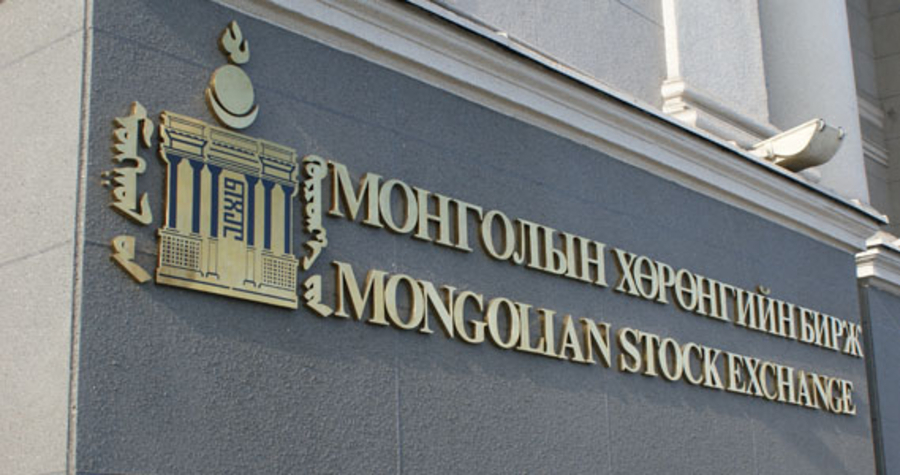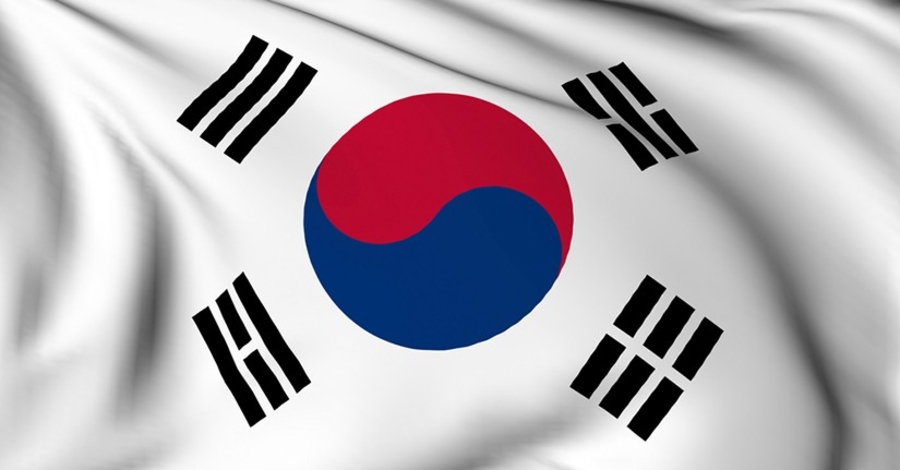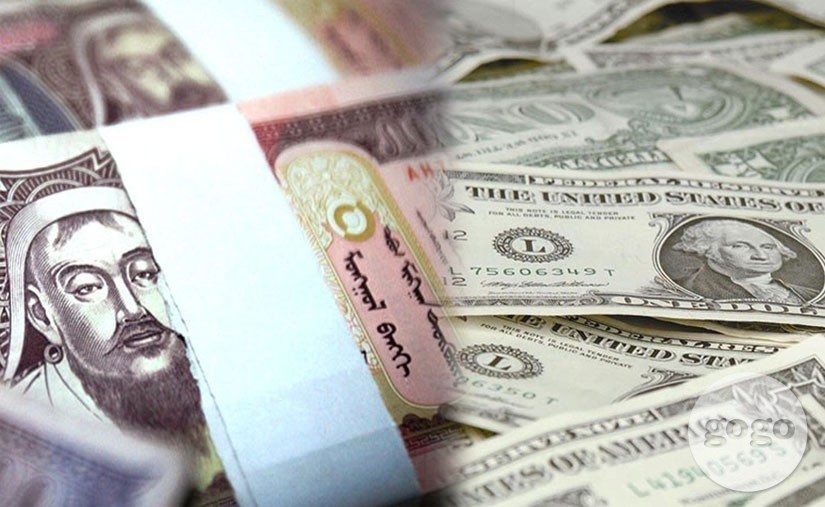Events
| Name | organizer | Where |
|---|---|---|
| MBCC “Doing Business with Mongolia seminar and Christmas Receptiom” Dec 10. 2025 London UK | MBCCI | London UK Goodman LLC |
NEWS

Construction of waste-to-energy plant to begin in 2026 www.gogo.mn
As part of Ulaanbaatar’s mega-development programme, a waste-to-energy plant will be built at Moringiin davaa. The project, planned within the 2025–2028 timeframe, will process 1,500 tonnes of waste per day and generate 35 MW of electricity for the central grid.
A partnership agreement with Renshou Sichuan Energy Investment and Environmental Protection LLC was signed on October 24. Construction is scheduled to start in 2026.
Land acquisition is under way: 64% of required parcels (101 out of 158 plots) have been secured to date. Once operational, the plant is expected to incinerate 31.8% of Ulaanbaatar’s municipal waste stream. Projected employment effects include more than 300 temporary jobs during construction and 86 permanent jobs after commissioning.

Securities Trading Reaches MNT 879.5 Billion www.montsame.mn
Securities market transactions totaled MNT 879.5 billion during the first 11 months of this year.
The figure represents a 27.4 percent decrease, or MNT 332.7 billion less, compared to the same period last year, according to the National Statistics Office.
Of the total securities transactions, 43.2 percent, or MNT 379.7 billion, were conducted in the primary market, while 56.8 percent, or MNT 499.8 billion, were traded in the secondary market.
By instrument type, 38 percent of total transactions consisted of asset-backed securities, 25.3 percent corporate bonds, 21.3 percent corporate shares, 14.8 percent government bonds, and 0.6 percent investment fund units.
In November, securities trading reached MNT 55.2 billion, marking a decline of 27 percent, or MNT 20.4 billion, year-on-year and a decrease of 43.5 percent, or MNT 42.5 billion, compared to the previous month.
During the first 11 months of the year, the volume of traded securities amounted to 813.6 million units, down 26.1 percent, or 286.9 million units, from the same period last year. Of this volume, 0.5 percent, or 3.7 million units, were traded on the primary market, while 99.5 percent, or 809.9 million units, were traded on the secondary market.
In November, the number of traded securities totaled 70.7 million units, representing a decrease of 39.3 million units from the same period last year and 30.6 million units from the previous month. Meanwhile, the TOP-20 Index reached 50,931.7 points, increasing by 1,637.5 points year-on-year and 1,680.3 points month-on-month.

Proposal, Conclusion on Determining the State Ownership Stakes in 'Achit Ikht', 'Erdenet Mining', and 'Zes Erdeniin Khuvi' LLCs to Be Discussed www.montsame.mn
During its regular meeting, the Government of Mongolia decided to discuss the proposal and conclusion on determining the percentage and scope of state ownership in Achit Ikht LLC, Erdenet Mining LLC, and Zes Erdeniin Khuvi LLC.
In accordance with Order No. 72 of 2025 issued by the Prime Minister of Mongolia, a working group was established with the mandate to accelerate the implementation of the Law on the National Wealth Fund, to determine the state ownership percentage in legal entities holding licenses for strategically significant mineral deposits whose state ownership share has not yet been determined, to prepare proposals on whether payments of mineral resource royalties may replace such ownership, and to conduct negotiations on these matters. The working group presented its progress report at the Cabinet meeting.
The Government instructed the working group to intensify its efforts and submit for Cabinet deliberation the proposal and conclusion on determining the state ownership percentage in Achit Ikht LLC, Erdenet Mining LLC, and Zes Erdeniin Khuvi LLC, which are producers of cathode copper based on the oxidized ore derivative deposit of the Erdenet copper and molybdenum deposit.
In addition, Minister of Mongolia and Chief of the Cabinet Secretariat Byambatsogt Sandag, presented an update on the activities of another working group established by Order of Prime Minister Zandanshatar Gombojav in August of 2025. This working group is tasked with improving natural resource management by conducting a nationwide inventory, monitoring and evaluation of mineral licenses, their ownership and locations, reviewing the payment status of mineral resource royalties by license holders, drawing conclusions, and formulating proposals for further measures to be taken.

'Mongolian Jingle Bells' goes viral as people think it's the 'best version ever' www.unilad.com
Hearing the same Christmas classics every year can leave you dreading the festive season and its seemingly never-ending loop of the same songs. But this year, the internet has fallen in love with an entirely new rendition of a song we all know a little too well.
Mongolia might not be the first, or even hundredth, place you'd associate with Christmas, but perhaps that is part of the magic of Ummet Ozcan's version of 'Jingle Bells' that has caused it to rack up millions of views and rave reviews.
Likely the first festive track to combine Mongolian throat singing, techno, and a 150-year-old Christmas song, Ozcan's new rendition has been called the 'best version so far' and had people say they 'would have way more fun shopping if this played in the stores.'
'Miracle' at Las Vegas church
This take on the 1857 composition cuts most of the 'dashing through the snow' lyrics, simply repeating 'Jingle bells, jingle bells, jingle all the way, oh what fun it is to ride in a Mongolian open sleigh' in the country's traditional reverberating singing style.
It's been a hit with listeners (@UmmetOzcanOfficial/YouTube)
It's been a hit with listeners (@UmmetOzcanOfficial/YouTube)
Dutch DJ Ozcan, who is of Turkish heritage, was encouraged to release a full-length track after showcasing a short throat-singing version of the Christmas classic and sending the internet wild - dropping a full music video with people in traditional Mongolian garb dancing to his new hit.
With millions viewing the song within just days of release, Ozcan also released 'Mongolian Jingle Bells' on Spotify so that everyone can add it to their Christmas playlists.
Part of the song's instant appeal is its unique use of 'throat singing', a traditional singing style used on the wide open plains of Mongolia, where a herder creates a melody by manipulating their vocal cords to sing two notes simultaneously.
It even drew the approval of the big man himself, with the official 'Santa Claus' Instagram account sharing the track and saying: "The elves are rocking to this in the workshop right now. I keep having to remind them to stop dancing and finish up the last of the gift requests!"
Play
Sharing his innovative techno-Mongolian Christmas banger, the DJ said: "This started as a fun idea… and thanks to your insane requests, it turned into a full song and music video.
"Hope this brings some warmth and joy in the days leading up to Christmas."
And if Ozcan's version of 'Jingle Bells' has left you needing more Mongolian Christmas music, a desire that could never have existed before the internet, you actually might be in luck.
Back in the distant past of 2014, a Mongolian folk group called The Altai Band actually released a genuine throat-singing version of that Christmas classic.
Unlike Ozcan's techno banger, Altai use traditional instruments and gather around in a group to belt out a more melodic version in their own language and traditional garb.
While it's not quite 'rave at the Christmas party,' it left some listeners feeling the festive spirit.
One YouTube user remarked: "This has the same kind of emotional vibe as when family and friends would gather around and play with the guitar or banjo or whatever instruments. Where on the opposite side of the globe, here in Texas. But music really is the universal language."

Police charge Mongolian embassy worker for drunk driving resulting in 3-vehicle crash www.koreajoongangdaily.joins.com
Police have charged an employee at the Mongolian Embassy in Korea for causing a three-vehicle collision while driving under the influence earlier this month, officials said Wednesday.
The Mongolian national is accused of causing the crash near Sinsa Station in southern Seoul at around 6 a.m. on Dec. 12, resulting in minor injuries to the drivers of the other vehicles, according to police.
At the time, the individual's blood alcohol level was high enough for driver's license revocation.
The embassy employee is entitled to immunity from criminal proceedings despite not being a diplomat.
Police plan to question the individual and check whether immunity will be invoked.

Second-Stage EPC+F Tender Announced for Ulaanbaatar Metro Project www.montsame.mn
The Integrated Project Management Office (IPMO) reported today, December 24, that following the evaluation of the first-stage tender of the Ulaanbaatar Metro Project, the tender documents for the second stage (Package I), intended for shortlisted bidders, have been finalized. Accordingly, the second-stage tender is officially announced on December 24, 2025, under an EPC+F arrangement. The tender is scheduled to be opened on May 1, 2026.
The first-stage tender for selecting the EPC contractor for the construction of the “Ulaanbaatar Metro” project was announced in October 2024 and opened in April 2025. A total of 27 companies and organizations from seven countries - the United Kingdom, the Russian Federation, France, India, the People’s Republic of China, Mongolia, and the Republic of Korea - submitted qualification documents.
According to the IPMO, the second stage of the project will be implemented in two packages. The estimated budget for Package I is MNT 6.6 trillion, of which the selected contractor is required to propose financing for 85 percent of the total cost as part of the tender submission, while the remaining 15 percent will be financed from the Capital City budget. The tender for Package II is planned to be announced in the fourth quarter of 2026.
A partnership led by Dohwa Engineering of the Republic of Korea was selected as the project management consultant for the Ulaanbaatar Metro project. Since July 2024, the consultant has prepared the revised feasibility study and conceptual design, which have been reviewed and approved in stages by relevant government authorities.
According to the revised feasibility study, the Ulaanbaatar Metro will be constructed along Peace Avenue, with a total length of 19.4 kilometers, built 20–30 meters underground, and comprising 15 stations. The system is designed to carry up to 17,000 passengers per hour per direction during peak periods. By 2030, when daily trips in Ulaanbaatar are projected to reach 4.5 million, the metro system is expected to accommodate approximately 450,000 daily passenger trips.
Upon completion, the project is expected to reduce road congestion in Ulaanbaatar by 18 percent. Travel time between Tolgoit and Amgalan is projected to decrease by 32 minutes compared to current conditions. The feasibility study estimates that economic losses caused by traffic congestion and excessive private vehicle use will be reduced by approximately USD 600 million annually.
In addition, the project will support 150–200 commercial and service enterprises at metro stations and create conditions for the concentration of over 150,000 jobs in station-area zones, contributing positively to urban economic activity. From an environmental perspective, the project is expected to reduce annual carbon dioxide emissions by approximately 213,000 tons, equivalent to the emissions generated by around 20,000 traditional Mongolian gers.

Ulaanbaatar Grand Slam to Open Olympic Ranking Cycle www.montsame.mn
The national judo team of Mongolia is closing 2025 on a high note, having competed in 10 continental, world championship, Grand Prix, and Grand Slam tournaments, winning a total of 40 medals. The tally includes 10 gold, seven silver, and 23 bronze medals. Two bronze medals were secured at the world judo championships.
The team’s first major competition of 2026 will be the national judo championships, scheduled to take place from January 23 to 25 in Chinggis City, Khentii aimag. This will be followed by participation in the Paris Grand Slam, which begins on February 7, where Mongolian judokas will also take part in joint training camps.
In addition, Mongolia will host the Ulaanbaatar Grand Slam tournament from 2026 through 2028, giving Mongolian fans the chance to watch the world’s top judokas compete in their home country.
The Ulaanbaatar Grand Slam will mark the opening event awarding ranking points toward qualification for the Los Angeles 2028 Olympic Games, while the final Olympic ranking event is scheduled to be the Ulaanbaatar Grand Slam in June 2028.

Legal reforms in Mongolia’s extractive sector www.en.mininginsight.mn
Awave of legal reform is beginning to sweep through Mongolia’s extractive sector. From amendments and revised versions of existing laws to the drafting of entirely new legislation, this reform agenda signals a fundamental reassessment of the sector’s governance framework and a deliberate effort to chart its future direction. It is this pivotal moment of transition to which we dedicate our November issue. Since assuming office six months ago, the Minister of Industry and Mineral Resources, G. Damdinnyam, has set an ambitious target: to reform five key laws. The scope alone illustrates the scale of change ahead. Two of these are entirely new laws, one is a full revision, and two involve substantial amendments.
The government is preparing amendments to the Law on Minerals and the Law on Petroleum Products, a complete overhaul of the Petroleum Law, and for the first time a standalone legal framework for the heavy industry sector. The Law on Ensuring the Supply of Strategic Commodities, approved under fast-track procedures, already stands as the first tangible outcome of this reform effort. While amendments to the Minerals Law are ready for submission, the remaining drafts are still under development. The core direction of the Minerals Law reform is clear: ensuring a fairer distribution of mineral wealth, strengthening meaningful local participation, and revitalizing the exploration environment. Adjustments to the royalty regime for copper, reopening exploration through an application-based system, and clarifying the governance of critical minerals have already attracted investor interest. In the petroleum sector, reforms aim to secure stable feedstock for Mongolia’s domestic refinery and to integrate extraction with downstream processing, an overdue but essential step for the national economy.
One of the most striking shifts is the decision to regulate both critical minerals and common minerals within the framework of the Minerals Law, while placing petroleum products under regulatory treatment comparable to hard minerals. This represents a significant departure from the long-standing practice of separating mineral resources into distinct legal regimes. It is a turning point that has the potential to reshape the broader logic of resource governance in Mongolia. The Minister’s interview in this issue provides deeper insight into the intent behind these policy shifts and their implications for the investment environment. Our coverage explores the rationale of these reforms and the opportunities they seek to unlock, while recognizing the lessons drawn from earlier attempts that fell short.
The future of Mongolia’s mining and petroleum sectors is inseparable from the stability of their legal environment. Earlier efforts to revise the Minerals Law, dating back to 2013, did not pass public and political scrutiny. Nonetheless, the lessons from those experiences now underpin the current reform agenda. Unlike previous initiatives that aimed at sweeping structural overhauls, the present approach focuses on resolving the most urgent and growth-constraining issues with clarity and practicality. Mistrust among investors, resistance from local communities, ambiguity surrounding the definition of strategic deposits, and sudden changes in the tax regime have all acted as barriers to progress. The central challenge of the ongoing reform is to untangle these accumulated obstacles. If the bottlenecks that have stalled new projects can be resolved, genuine progress is likely to follow. At the same time, a fairer distribution of mineral revenues for local development, a royalty mechanism that can rebuild investor confidence, and an updated definition of strategic deposits, if approved by Parliament, could provide the sector with new momentum. In this issue, we sought to include a diversity of perspectives on the proposed legal reforms, with particular attention to the role and responsibility of Parliament in shaping the sector’s future. The interview with the Senior Advisor to the Prime Minister also offers readers valuable insight into the government’s broader reform agenda and the development trajectory envisioned for the next five years.
By N.Ariuntuya

Iconic Samuel Beckett Bridge to Be Illuminated in Mongolia’s National Flag www.montsame.mn
A ceremonial lighting of the iconic Samuel Beckett bridge in the colors of Mongolia’s national flag will take place on December 29, 2025.
The event marks the 114th anniversary of Mongolia’s restoration of national freedom and independence, as well as the 27th anniversary of the establishment of diplomatic relations between Mongolia and Ireland. The Embassy of Mongolia to the Republic of Ireland and the Dublin City Council are jointly organizing the illumination.
The initiative symbolizes the friendly relations, mutual understanding, and growing cooperation between the two countries. The illumination is scheduled to begin at 18:00 local time.

Tugrug Deposits Rise by MNT 3.7 Trillion www.montsame.mn
At the end of November 2025, tugrug-denominated deposits reached MNT 24.7 trillion, up 17.4 percent or MNT 3.7 trillion compared with the same period last year, and up 3.1 percent or MNT 747.5 billion from the previous month.
According to the National Statistics Office of Mongolia, 84.6 percent of tugrug deposits, equivalent to MNT 20.9 trillion, belonged to individuals, while 15.4 percent, or MNT 3.8 trillion, were held by businesses and organizations.
Foreign currency deposits totaled MNT 5.4 trillion, increasing 19.4 percent or MNT 879.3 billion year-on-year, but declining 1.2 percent or MNT 65.3 billion month-on-month.
Cash in circulation reached MNT 1.2 trillion at the end of last month (preliminary data), up 5.4 percent or MNT 61.5 billion year-on-year, and 0.3 percent or MNT 4 billion month-on-month.
- «
- 1
- 2
- 3
- 4
- 5
- 6
- 7
- 8
- 9
- 10
- 11
- 12
- 13
- 14
- 15
- 16
- 17
- 18
- 19
- 20
- 21
- 22
- 23
- 24
- 25
- 26
- 27
- 28
- 29
- 30
- 31
- 32
- 33
- 34
- 35
- 36
- 37
- 38
- 39
- 40
- 41
- 42
- 43
- 44
- 45
- 46
- 47
- 48
- 49
- 50
- 51
- 52
- 53
- 54
- 55
- 56
- 57
- 58
- 59
- 60
- 61
- 62
- 63
- 64
- 65
- 66
- 67
- 68
- 69
- 70
- 71
- 72
- 73
- 74
- 75
- 76
- 77
- 78
- 79
- 80
- 81
- 82
- 83
- 84
- 85
- 86
- 87
- 88
- 89
- 90
- 91
- 92
- 93
- 94
- 95
- 96
- 97
- 98
- 99
- 100
- 101
- 102
- 103
- 104
- 105
- 106
- 107
- 108
- 109
- 110
- 111
- 112
- 113
- 114
- 115
- 116
- 117
- 118
- 119
- 120
- 121
- 122
- 123
- 124
- 125
- 126
- 127
- 128
- 129
- 130
- 131
- 132
- 133
- 134
- 135
- 136
- 137
- 138
- 139
- 140
- 141
- 142
- 143
- 144
- 145
- 146
- 147
- 148
- 149
- 150
- 151
- 152
- 153
- 154
- 155
- 156
- 157
- 158
- 159
- 160
- 161
- 162
- 163
- 164
- 165
- 166
- 167
- 168
- 169
- 170
- 171
- 172
- 173
- 174
- 175
- 176
- 177
- 178
- 179
- 180
- 181
- 182
- 183
- 184
- 185
- 186
- 187
- 188
- 189
- 190
- 191
- 192
- 193
- 194
- 195
- 196
- 197
- 198
- 199
- 200
- 201
- 202
- 203
- 204
- 205
- 206
- 207
- 208
- 209
- 210
- 211
- 212
- 213
- 214
- 215
- 216
- 217
- 218
- 219
- 220
- 221
- 222
- 223
- 224
- 225
- 226
- 227
- 228
- 229
- 230
- 231
- 232
- 233
- 234
- 235
- 236
- 237
- 238
- 239
- 240
- 241
- 242
- 243
- 244
- 245
- 246
- 247
- 248
- 249
- 250
- 251
- 252
- 253
- 254
- 255
- 256
- 257
- 258
- 259
- 260
- 261
- 262
- 263
- 264
- 265
- 266
- 267
- 268
- 269
- 270
- 271
- 272
- 273
- 274
- 275
- 276
- 277
- 278
- 279
- 280
- 281
- 282
- 283
- 284
- 285
- 286
- 287
- 288
- 289
- 290
- 291
- 292
- 293
- 294
- 295
- 296
- 297
- 298
- 299
- 300
- 301
- 302
- 303
- 304
- 305
- 306
- 307
- 308
- 309
- 310
- 311
- 312
- 313
- 314
- 315
- 316
- 317
- 318
- 319
- 320
- 321
- 322
- 323
- 324
- 325
- 326
- 327
- 328
- 329
- 330
- 331
- 332
- 333
- 334
- 335
- 336
- 337
- 338
- 339
- 340
- 341
- 342
- 343
- 344
- 345
- 346
- 347
- 348
- 349
- 350
- 351
- 352
- 353
- 354
- 355
- 356
- 357
- 358
- 359
- 360
- 361
- 362
- 363
- 364
- 365
- 366
- 367
- 368
- 369
- 370
- 371
- 372
- 373
- 374
- 375
- 376
- 377
- 378
- 379
- 380
- 381
- 382
- 383
- 384
- 385
- 386
- 387
- 388
- 389
- 390
- 391
- 392
- 393
- 394
- 395
- 396
- 397
- 398
- 399
- 400
- 401
- 402
- 403
- 404
- 405
- 406
- 407
- 408
- 409
- 410
- 411
- 412
- 413
- 414
- 415
- 416
- 417
- 418
- 419
- 420
- 421
- 422
- 423
- 424
- 425
- 426
- 427
- 428
- 429
- 430
- 431
- 432
- 433
- 434
- 435
- 436
- 437
- 438
- 439
- 440
- 441
- 442
- 443
- 444
- 445
- 446
- 447
- 448
- 449
- 450
- 451
- 452
- 453
- 454
- 455
- 456
- 457
- 458
- 459
- 460
- 461
- 462
- 463
- 464
- 465
- 466
- 467
- 468
- 469
- 470
- 471
- 472
- 473
- 474
- 475
- 476
- 477
- 478
- 479
- 480
- 481
- 482
- 483
- 484
- 485
- 486
- 487
- 488
- 489
- 490
- 491
- 492
- 493
- 494
- 495
- 496
- 497
- 498
- 499
- 500
- 501
- 502
- 503
- 504
- 505
- 506
- 507
- 508
- 509
- 510
- 511
- 512
- 513
- 514
- 515
- 516
- 517
- 518
- 519
- 520
- 521
- 522
- 523
- 524
- 525
- 526
- 527
- 528
- 529
- 530
- 531
- 532
- 533
- 534
- 535
- 536
- 537
- 538
- 539
- 540
- 541
- 542
- 543
- 544
- 545
- 546
- 547
- 548
- 549
- 550
- 551
- 552
- 553
- 554
- 555
- 556
- 557
- 558
- 559
- 560
- 561
- 562
- 563
- 564
- 565
- 566
- 567
- 568
- 569
- 570
- 571
- 572
- 573
- 574
- 575
- 576
- 577
- 578
- 579
- 580
- 581
- 582
- 583
- 584
- 585
- 586
- 587
- 588
- 589
- 590
- 591
- 592
- 593
- 594
- 595
- 596
- 597
- 598
- 599
- 600
- 601
- 602
- 603
- 604
- 605
- 606
- 607
- 608
- 609
- 610
- 611
- 612
- 613
- 614
- 615
- 616
- 617
- 618
- 619
- 620
- 621
- 622
- 623
- 624
- 625
- 626
- 627
- 628
- 629
- 630
- 631
- 632
- 633
- 634
- 635
- 636
- 637
- 638
- 639
- 640
- 641
- 642
- 643
- 644
- 645
- 646
- 647
- 648
- 649
- 650
- 651
- 652
- 653
- 654
- 655
- 656
- 657
- 658
- 659
- 660
- 661
- 662
- 663
- 664
- 665
- 666
- 667
- 668
- 669
- 670
- 671
- 672
- 673
- 674
- 675
- 676
- 677
- 678
- 679
- 680
- 681
- 682
- 683
- 684
- 685
- 686
- 687
- 688
- 689
- 690
- 691
- 692
- 693
- 694
- 695
- 696
- 697
- 698
- 699
- 700
- 701
- 702
- 703
- 704
- 705
- 706
- 707
- 708
- 709
- 710
- 711
- 712
- 713
- 714
- 715
- 716
- 717
- 718
- 719
- 720
- 721
- 722
- 723
- 724
- 725
- 726
- 727
- 728
- 729
- 730
- 731
- 732
- 733
- 734
- 735
- 736
- 737
- 738
- 739
- 740
- 741
- 742
- 743
- 744
- 745
- 746
- 747
- 748
- 749
- 750
- 751
- 752
- 753
- 754
- 755
- 756
- 757
- 758
- 759
- 760
- 761
- 762
- 763
- 764
- 765
- 766
- 767
- 768
- 769
- 770
- 771
- 772
- 773
- 774
- 775
- 776
- 777
- 778
- 779
- 780
- 781
- 782
- 783
- 784
- 785
- 786
- 787
- 788
- 789
- 790
- 791
- 792
- 793
- 794
- 795
- 796
- 797
- 798
- 799
- 800
- 801
- 802
- 803
- 804
- 805
- 806
- 807
- 808
- 809
- 810
- 811
- 812
- 813
- 814
- 815
- 816
- 817
- 818
- 819
- 820
- 821
- 822
- 823
- 824
- 825
- 826
- 827
- 828
- 829
- 830
- 831
- 832
- 833
- 834
- 835
- 836
- 837
- 838
- 839
- 840
- 841
- 842
- 843
- 844
- 845
- 846
- 847
- 848
- 849
- 850
- 851
- 852
- 853
- 854
- 855
- 856
- 857
- 858
- 859
- 860
- 861
- 862
- 863
- 864
- 865
- 866
- 867
- 868
- 869
- 870
- 871
- 872
- 873
- 874
- 875
- 876
- 877
- 878
- 879
- 880
- 881
- 882
- 883
- 884
- 885
- 886
- 887
- 888
- 889
- 890
- 891
- 892
- 893
- 894
- 895
- 896
- 897
- 898
- 899
- 900
- 901
- 902
- 903
- 904
- 905
- 906
- 907
- 908
- 909
- 910
- 911
- 912
- 913
- 914
- 915
- 916
- 917
- 918
- 919
- 920
- 921
- 922
- 923
- 924
- 925
- 926
- 927
- 928
- 929
- 930
- 931
- 932
- 933
- 934
- 935
- 936
- 937
- 938
- 939
- 940
- 941
- 942
- 943
- 944
- 945
- 946
- 947
- 948
- 949
- 950
- 951
- 952
- 953
- 954
- 955
- 956
- 957
- 958
- 959
- 960
- 961
- 962
- 963
- 964
- 965
- 966
- 967
- 968
- 969
- 970
- 971
- 972
- 973
- 974
- 975
- 976
- 977
- 978
- 979
- 980
- 981
- 982
- 983
- 984
- 985
- 986
- 987
- 988
- 989
- 990
- 991
- 992
- 993
- 994
- 995
- 996
- 997
- 998
- 999
- 1000
- 1001
- 1002
- 1003
- 1004
- 1005
- 1006
- 1007
- 1008
- 1009
- 1010
- 1011
- 1012
- 1013
- 1014
- 1015
- 1016
- 1017
- 1018
- 1019
- 1020
- 1021
- 1022
- 1023
- 1024
- 1025
- 1026
- 1027
- 1028
- 1029
- 1030
- 1031
- 1032
- 1033
- 1034
- 1035
- 1036
- 1037
- 1038
- 1039
- 1040
- 1041
- 1042
- 1043
- 1044
- 1045
- 1046
- 1047
- 1048
- 1049
- 1050
- 1051
- 1052
- 1053
- 1054
- 1055
- 1056
- 1057
- 1058
- 1059
- 1060
- 1061
- 1062
- 1063
- 1064
- 1065
- 1066
- 1067
- 1068
- 1069
- 1070
- 1071
- 1072
- 1073
- 1074
- 1075
- 1076
- 1077
- 1078
- 1079
- 1080
- 1081
- 1082
- 1083
- 1084
- 1085
- 1086
- 1087
- 1088
- 1089
- 1090
- 1091
- 1092
- 1093
- 1094
- 1095
- 1096
- 1097
- 1098
- 1099
- 1100
- 1101
- 1102
- 1103
- 1104
- 1105
- 1106
- 1107
- 1108
- 1109
- 1110
- 1111
- 1112
- 1113
- 1114
- 1115
- 1116
- 1117
- 1118
- 1119
- 1120
- 1121
- 1122
- 1123
- 1124
- 1125
- 1126
- 1127
- 1128
- 1129
- 1130
- 1131
- 1132
- 1133
- 1134
- 1135
- 1136
- 1137
- 1138
- 1139
- 1140
- 1141
- 1142
- 1143
- 1144
- 1145
- 1146
- 1147
- 1148
- 1149
- 1150
- 1151
- 1152
- 1153
- 1154
- 1155
- 1156
- 1157
- 1158
- 1159
- 1160
- 1161
- 1162
- 1163
- 1164
- 1165
- 1166
- 1167
- 1168
- 1169
- 1170
- 1171
- 1172
- 1173
- 1174
- 1175
- 1176
- 1177
- 1178
- 1179
- 1180
- 1181
- 1182
- 1183
- 1184
- 1185
- 1186
- 1187
- 1188
- 1189
- 1190
- 1191
- 1192
- 1193
- 1194
- 1195
- 1196
- 1197
- 1198
- 1199
- 1200
- 1201
- 1202
- 1203
- 1204
- 1205
- 1206
- 1207
- 1208
- 1209
- 1210
- 1211
- 1212
- 1213
- 1214
- 1215
- 1216
- 1217
- 1218
- 1219
- 1220
- 1221
- 1222
- 1223
- 1224
- 1225
- 1226
- 1227
- 1228
- 1229
- 1230
- 1231
- 1232
- 1233
- 1234
- 1235
- 1236
- 1237
- 1238
- 1239
- 1240
- 1241
- 1242
- 1243
- 1244
- 1245
- 1246
- 1247
- 1248
- 1249
- 1250
- 1251
- 1252
- 1253
- 1254
- 1255
- 1256
- 1257
- 1258
- 1259
- 1260
- 1261
- 1262
- 1263
- 1264
- 1265
- 1266
- 1267
- 1268
- 1269
- 1270
- 1271
- 1272
- 1273
- 1274
- 1275
- 1276
- 1277
- 1278
- 1279
- 1280
- 1281
- 1282
- 1283
- 1284
- 1285
- 1286
- 1287
- 1288
- 1289
- 1290
- 1291
- 1292
- 1293
- 1294
- 1295
- 1296
- 1297
- 1298
- 1299
- 1300
- 1301
- 1302
- 1303
- 1304
- 1305
- 1306
- 1307
- 1308
- 1309
- 1310
- 1311
- 1312
- 1313
- 1314
- 1315
- 1316
- 1317
- 1318
- 1319
- 1320
- 1321
- 1322
- 1323
- 1324
- 1325
- 1326
- 1327
- 1328
- 1329
- 1330
- 1331
- 1332
- 1333
- 1334
- 1335
- 1336
- 1337
- 1338
- 1339
- 1340
- 1341
- 1342
- 1343
- 1344
- 1345
- 1346
- 1347
- 1348
- 1349
- 1350
- 1351
- 1352
- 1353
- 1354
- 1355
- 1356
- 1357
- 1358
- 1359
- 1360
- 1361
- 1362
- 1363
- 1364
- 1365
- 1366
- 1367
- 1368
- 1369
- 1370
- 1371
- 1372
- 1373
- 1374
- 1375
- 1376
- 1377
- 1378
- 1379
- 1380
- 1381
- 1382
- 1383
- 1384
- 1385
- 1386
- 1387
- 1388
- 1389
- 1390
- 1391
- 1392
- 1393
- 1394
- 1395
- 1396
- 1397
- 1398
- 1399
- 1400
- 1401
- 1402
- 1403
- 1404
- 1405
- 1406
- 1407
- 1408
- 1409
- 1410
- 1411
- 1412
- 1413
- 1414
- 1415
- 1416
- 1417
- 1418
- 1419
- 1420
- 1421
- 1422
- 1423
- 1424
- 1425
- 1426
- 1427
- 1428
- 1429
- 1430
- 1431
- 1432
- 1433
- 1434
- 1435
- 1436
- 1437
- 1438
- 1439
- 1440
- 1441
- 1442
- 1443
- 1444
- 1445
- 1446
- 1447
- 1448
- 1449
- 1450
- 1451
- 1452
- 1453
- 1454
- 1455
- 1456
- 1457
- 1458
- 1459
- 1460
- 1461
- 1462
- 1463
- 1464
- 1465
- 1466
- 1467
- 1468
- 1469
- 1470
- 1471
- 1472
- 1473
- 1474
- 1475
- 1476
- 1477
- 1478
- 1479
- 1480
- 1481
- 1482
- 1483
- 1484
- 1485
- 1486
- 1487
- 1488
- 1489
- 1490
- 1491
- 1492
- 1493
- 1494
- 1495
- 1496
- 1497
- 1498
- 1499
- 1500
- 1501
- 1502
- 1503
- 1504
- 1505
- 1506
- 1507
- 1508
- 1509
- 1510
- 1511
- 1512
- 1513
- 1514
- 1515
- 1516
- 1517
- 1518
- 1519
- 1520
- 1521
- 1522
- 1523
- 1524
- 1525
- 1526
- 1527
- 1528
- 1529
- 1530
- 1531
- 1532
- 1533
- 1534
- 1535
- 1536
- 1537
- 1538
- 1539
- 1540
- 1541
- 1542
- 1543
- 1544
- 1545
- 1546
- 1547
- 1548
- 1549
- 1550
- 1551
- 1552
- 1553
- 1554
- 1555
- 1556
- 1557
- 1558
- 1559
- 1560
- 1561
- 1562
- 1563
- 1564
- 1565
- 1566
- 1567
- 1568
- 1569
- 1570
- 1571
- 1572
- 1573
- 1574
- 1575
- 1576
- 1577
- 1578
- 1579
- 1580
- 1581
- 1582
- 1583
- 1584
- 1585
- 1586
- 1587
- 1588
- 1589
- 1590
- 1591
- 1592
- 1593
- 1594
- 1595
- 1596
- 1597
- 1598
- 1599
- 1600
- 1601
- 1602
- 1603
- 1604
- 1605
- 1606
- 1607
- 1608
- 1609
- 1610
- 1611
- 1612
- 1613
- 1614
- 1615
- 1616
- 1617
- 1618
- 1619
- 1620
- 1621
- 1622
- 1623
- 1624
- 1625
- 1626
- 1627
- 1628
- 1629
- 1630
- 1631
- 1632
- 1633
- 1634
- 1635
- 1636
- 1637
- 1638
- 1639
- 1640
- 1641
- 1642
- 1643
- 1644
- 1645
- 1646
- 1647
- 1648
- 1649
- 1650
- 1651
- 1652
- 1653
- 1654
- 1655
- 1656
- 1657
- 1658
- 1659
- 1660
- 1661
- 1662
- 1663
- 1664
- 1665
- 1666
- 1667
- 1668
- 1669
- 1670
- 1671
- 1672
- 1673
- 1674
- 1675
- 1676
- 1677
- 1678
- 1679
- 1680
- 1681
- 1682
- 1683
- 1684
- 1685
- 1686
- 1687
- 1688
- 1689
- 1690
- 1691
- 1692
- 1693
- 1694
- 1695
- 1696
- 1697
- 1698
- 1699
- 1700
- 1701
- 1702
- 1703
- 1704
- 1705
- 1706
- 1707
- 1708
- 1709
- 1710
- 1711
- 1712
- 1713
- 1714
- 1715
- 1716
- 1717
- 1718
- 1719
- 1720
- 1721
- 1722
- 1723
- 1724
- 1725
- 1726
- »






